Meet the young refugee Fashion Designer inspiring others to join the industry
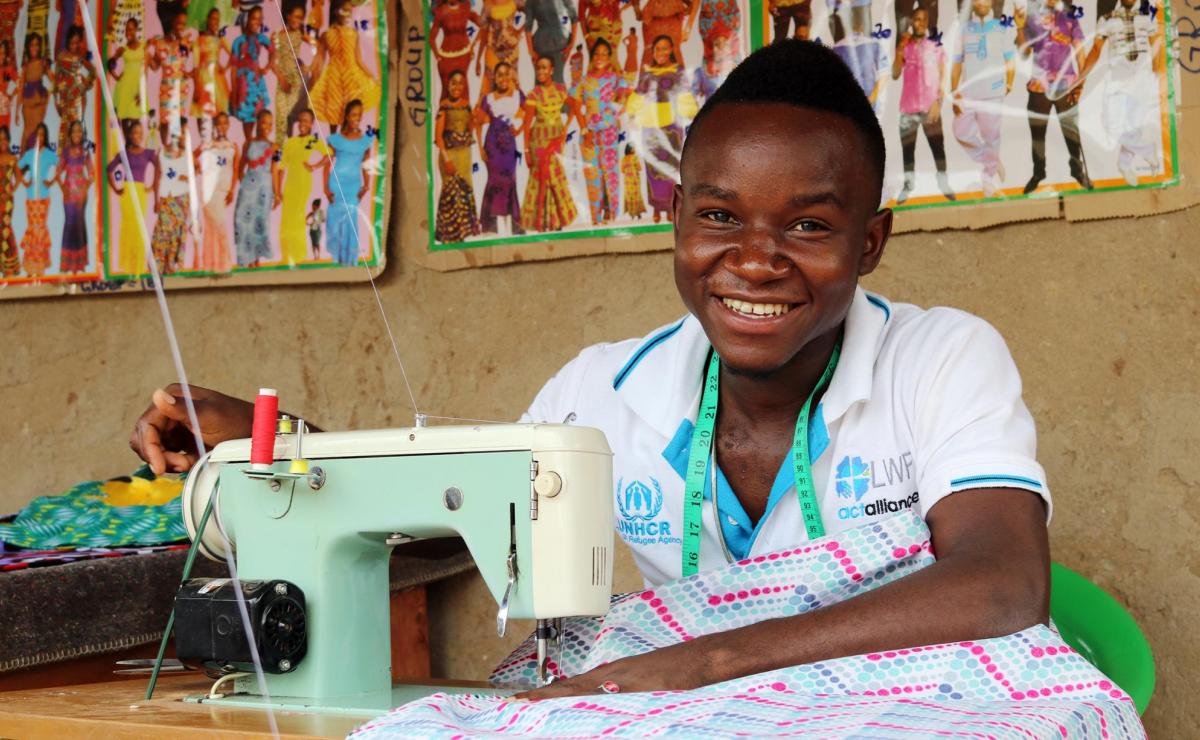
You give him an African fabric, Zubert Masuku gives you a ready-to-wear fine cloth, beautifully made by the hands of a skilled and experienced Fashion Designer. He spends his days making fine clothes for the young and old which has made him a distinguished Fashion Designer in Rwamwanja settlement.
Masuku is a 21-year-old DRC refugee who arrived in Uganda with nothing in hand apart from a tailoring machine he got from his grandfather. “I had my first tailoring classes using this machine and I knew it would be my source of income in Uganda.” Says Masuku who comes from a lineage of prominent Fashion Designers in DRC.
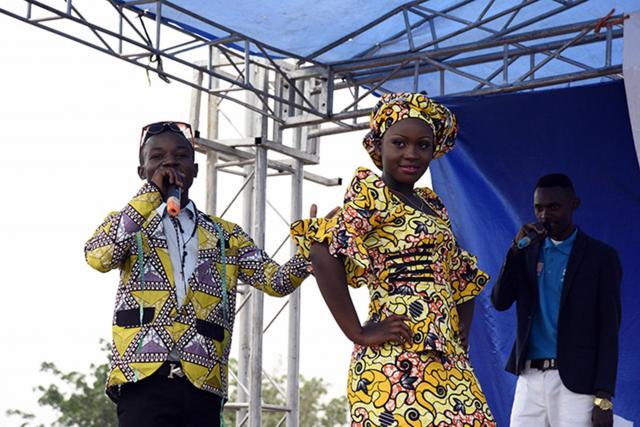
In 2017, the Lutheran World Federation (LWF) with funds from the Bureau of Population, Refugees, and Migration (PRM) organized a youth talent search and competition gala in Rwamwanja settlement. “I joined the competition as a talented Fashion Designer and emerged one of the seven finalists.” Narrates Masuku.
“This was my breakthrough. My victory came with exposure for my skills. I also got an opportunity from LWF for further training by one of Uganda’s finest Fashion Designers.” Masuku describes the training as fruitful as he learned more about fashion sketching and how to explore various methods of designing high-quality aesthetic products.
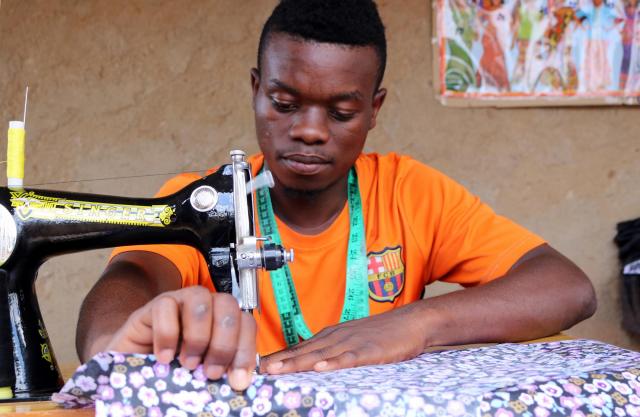
Masuku offers free training to fellow refugee youth
Masuku is a fine Fashion Designer who has fortunately acquired all the skills at a zero monetary expense. He chooses to bless others with the same opportunity at no cost. Masuku invites those interested in fashion to join him every day from 8:00am to 11:00am for a practical training in tailoring before he starts working on his cloth pieces for a living.
“All the young people in the settlement need skills to earn a living.” Masuku. Alex Fiston Baseme is one of Masuku’s trainees and coworker. He joined Masuku after acquiring a four months training in Fashion and Design at Nakivaale Vocational Institute in 2017 which was funded by LWF and PRM.
Baseme joined Masuku to practice and master the art of Fashion and Design. “He also gave me an opportunity to work with him in return for an income." Adds Baseme who earns at least UGX 80,000 a month from the business. Baseme is now a confident Fashion Designer who satisfies his customers’ needs and has also started developing a clientele list.
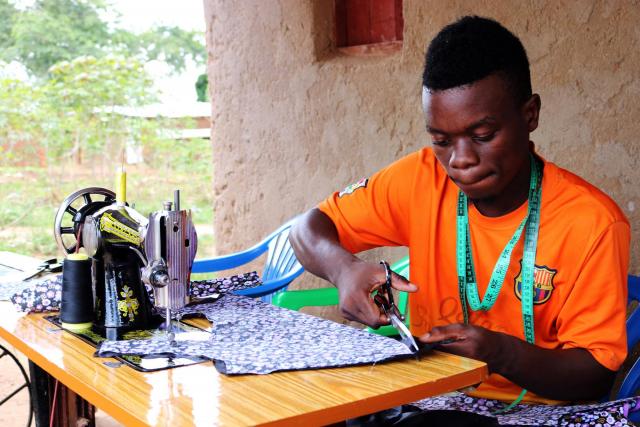
Esther Kwira is another of Masuku’s trainees and a beneficiary of LWF and PRM’s vocation training sponsorship program. Kwira is acquiring further training from Masuku to perfect her fashion draping skills. “I want to learn how to wrap various types of fabric over differently shaped forms like satin over a human shape torso.”
“I am learning pattern drafting skills so that I can be able to create, draw and cut patterns while creating garments.” Adds Rebecca Iragena another of Masuku’s trainees and a beneficiary of LWF and PRM’s education sponsorship program.
Once his students master the art, Masuku sends them off to start couture businesses. He then takes in a new batch which he also trains for utmost two months before taking in another. “I mostly give opportunities to Fashion and Design graduates who haven’t mastered the skills.” “I don’t want this to be a reason for them to continue being unemployed.” Masuku.
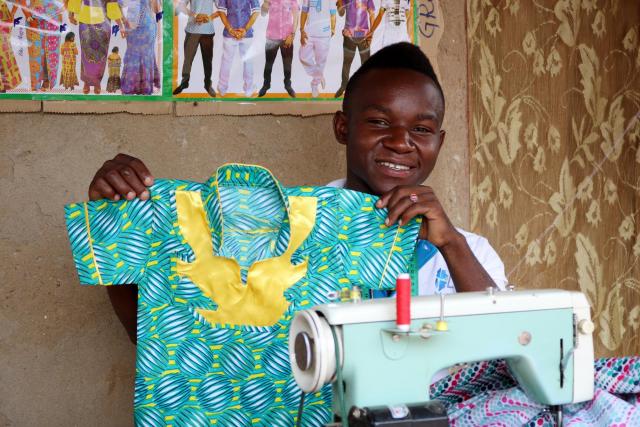
Vocational training opportunities for refugees
With funds from PRM, LWF offers vocational training opportunities to youth refugees and host community residents to equip them with skills they can use to earn a living. “We want youth to be financially independent and aid sustainable development not only in Rwamwanja but, in Uganda at large.” Says LWF’s Evans Mubangizi.
Trainees are offered a list of courses from which to choose including; Tailoring, Building and Concrete Practice, Carpentry, Hair dressing and Saloon, Driving and Mechanics as well as Electrical Installation and Wielding.
In 2017 alone, 155 out of school youth in Rwamwanja settlement acquired vocational training from Nakivaale Vocational Institute with support from LWF and PRM. After the training, graduates were offered business startup kits to start small businesses in their specific fields of study. Majority of these have established businesses and are earning a living.

